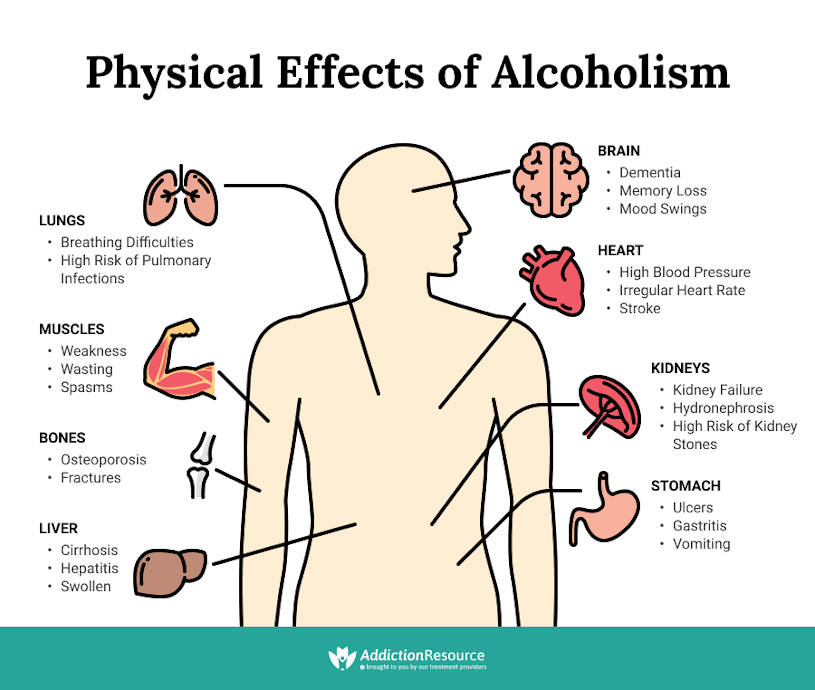Your Brain on Alcohol
Drinking not only has the ability to negatively impact your social life, relationships, and job security, it can also wreak havoc on your physical health. And that’s not something that’s discussed often enough.
Alcohol can disrupt your brain’s communication pathways, making it difficult for you to think clearly. These disruptions also make it more like you experience changes in your mood, memory, and coordination.
Heart Damage
Whether you drink a lot over a long period of time or drink too much in a single night, you are putting yourself at risk of heart damage. Excessive alcohol consumption has been linked to cardiomyopathy, arrhythmias, strokes, and high blood pressure.
Increased Cancer Risk
According to the National Cancer Institute, there is a strong association between alcohol consumption and several types of cancers including oral, esophageal, liver, breast, and colon cancers. In fact, the National Toxicology Program of the US Department of Health and Human Services lists alcohol as a known human carcinogen.
Weakened Immunity
Drinking excessively can weaken your immune system, making you a target for illness and disease. Even drinking too much in a single night can make it hard for your body to ward off infections for a 24-hour period.
Worsened Mental Health
Alcohol can exacerbate existing mental health conditions such as depression and anxiety, as well as interact dangerously with prescribed medications for mental illness. Using alcohol as a way to numb mental health challenges or temporarily feel better can backfire as you’re not able to create true coping mechanisms to treat and manage your symptoms.

Help is Available
It can be difficult to recognize if you’re struggling with alcohol addiction but taking the time to observe and understand your alcohol use is important. There are resources available that can help you identify and understand your relationship with alcohol, including this one from the National Institute of Health. And, there are numerous ways and places to find treatment should you need it, including talking with your primary care doctor, finding a support group, and seeking out behavioral treatment (like counseling).
If you’re wondering if you or a loved one might have an addiction to alcohol, know that you are not alone. Talk to someone you trust and make a plan to seek out treatment. You can take back your life and develop a healthier relationship with alcohol for your physical and mental health.
In honor of alcohol awareness month, here is a list of recommended self-help reading:





